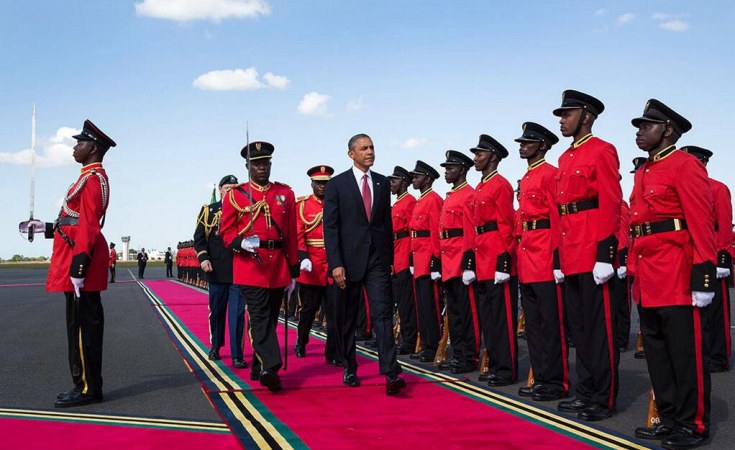Washington, DC — At a press conference in Senegal, before flying to South Africa today, president Barack Obama called for a "shift in paradigm" – from viewing Africa as a recipient of aid to recognizing it as a destination for trade and investment.
He's right. The image of Africa as a problem child that must be managed so as not to undermine security and other interests, should be replaced with an image of a continent of opportunity.
That shift is already underway among U.S. policy makers – and not just at the White House. Inside the U.S. Congress, there are moves towards facilitating relationships that could signal a new economic partnership with Africa.
Last week the Africa Subcommittee of the Senate Foreign Relations Committee passed a bill intended to boost trade with Africa by imposing better coordination between U.S. government agencies and departments, establishing comprehensive strategic goals, and marshaling private investments to improve U.S. exports to Africa. The strategic goals include doubling exports of American goods and services to Africa within 10 years and promoting the alignment of American commercial interests with development priorities in Africa.
The 'Increasing American Jobs through Greater Exports to Africa Act of 2013' was introduced by Senators Dick Durbin (D-IL), John Boozman (R-AR) and Chris Coons (D-DE) in April. An identical version of the bill was introduced in the House of Representatives but remains in committee review. An earlier version of the bipartisan bill was introduced last year and passed by the Senate Foreign Relations Committee, but it was not brought to the floor of the full Senate for a vote.
The new legislation, if passed, would be the first major US-Africa authorization bill since the Africa Growth and Opportunity Act, passed under President Bill Clinton in 2000, gave preferential access to American markets to qualifying African countries. It was extended by President George W. Bush through 2015.
"This bill will put the restoration of American competiveness in Africa at the forefront of our business and development goals," Senator Durbin said in a statement. "It will give American businesses the tools they need to do business in Africa, create jobs at home, and help ensure America is seen as a leader in a rapidly changing part of the world".
Though primarily pitched to appeal to the American private sector, the legislation also embraces the growing voice of the African private sector. Before gaining committee approval, the bill was amended to include a new strategic goal of "supporting African entrepreneurship and private sector development as a means to sustainable economic growth and security."
The amendment is consistent with the concept of "Africapitalism," coined by Heirs Holdings Chairman Tony Elumelu, who is helping to engineer a thought revolution on how Africans define themselves and their responsibilities to their communities, as well as a re-thinking of the obligations of both donor and host-country governments.
The idea is that the private sector can solve Africa's most pressing challenges through long term investments that create economic prosperity and social wealth. Under Africaptialism, governments must be the enablers of the private sector. As a result, transparency and accountability – key elements of good governance – are core to the philosophy.
Those in the United States who are committed to Africa's economic development, and who want to see that development benefit more than just a few, should support the new trade bill's passage towards full legislative enactment.
As global attention focuses on the legacy of Nelson Mandela, a more dynamic, mutually beneficial relationship between the United States and Africa would be a fitting tribute.
K. Riva Levinson is the founder and managing director of KRL International LLC, a consultancy dedicated to work in the world's emerging markets. She has worked in Africa for more than 20 years and has been an advisor to Liberian President Ellen Johnson Sirleaf since 1996.


